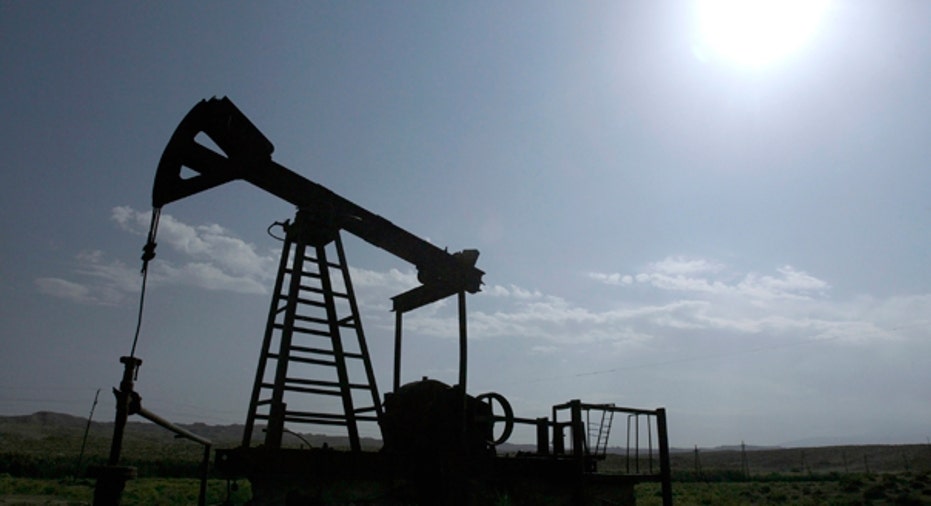U.S. Loosens Grip on Decades-Old Crude Export Ban

U.S. officials have told energy companies that they may export a variety of ultra-light oil if it has been minimally refined, an apparent marginal loosening of a decades-old ban on selling U.S. crude abroad.
The U.S. Department of Commerce's Bureau of Industry and Security told Pioneer Natural Resources Co that putting light oil, known as condensate, through a stabilizer was sufficient processing to qualify it as a refined product, eligible for export without a license.
"The stabilization process at Pioneer's Eagle Ford Shale central gathering facilities involves a distillation unit that lowers vapor pressure and removes volatile lighter hydrocarbons," Pioneer said in a statement. This process qualifies the crude as a product that can be exported, Pioneer said.
The Wall Street Journal previously reported that the Department of Commerce, which has come under growing pressure to ease restrictions amid a resurgence in domestic production, had given approval via a private ruling to Pioneer and Enterprise Product Partners LP to export the so-called condensate. Enterprise didn't respond to requests for comment.
A Commerce spokesman did not comment on the specific rulings but told Reuters that there had been "no change in policy" toward crude oil exports, a topic that has emerged as one of the most contentious energy policy issues this year.
Condensate may be exported if it has been run through a distillation tower, a type of refining unit, because the process "results in the crude becoming a petroleum product (that) is no longer defined as crude oil," said Commerce spokesman Jim Hock. Refined products such as gasoline and diesel are not restricted.
"Existing statutes provide both specific restrictions and allowances regarding crude oil exports," Hock said. Some energy experts also agreed that the ruling appeared consistent with existing interpretation of the 40-year-old law.
Still, U.S. oil prices rose more than $1 to $107.05 a barrel after the report, highlighting the intensifying scrutiny of a gray area in regulations that prohibit export of condensate that has been produced directly from an oil field but allow it if the same type of oil emerges from a natural gas plant or a refinery.
ASIAN BUYERS
Energy-hungry Asian countries, which get most of their oil from the Middle East, would welcome extra U.S. supplies. Three new condensate splitters, a type of refinery, are due to open this year in the region able to process a total of 350,000 barrels per day.
Some oil traders in Asia, however, predict it will be a few years before U.S. supplies hit the market, given the time needed to pin down details such as specifications and freight costs. Reuters reported in May that U.S. oil producers, including Pioneer, had met with the Department of Commerce's Bureau of Industry and Security (BIS), which oversees exports, and were hopeful of some form of easing on condensate limitations.
The U.S. shale oil boom of recent years is expected to soon make the country the world's top crude producer, surpassing both Saudi Arabia and Russia. It has also led to a glut of light oil in Texas and Louisiana that is difficult to process there because refiners have invested billions of dollars to process heavier oils from Mexico and Venezuela.
Some ultra-light oil could be reclassified as fuel after it has been minimally processed, putting it in a regulatory gray area that has been seen by some export backers as a way to ease the ban on exports.
Senator Lisa Murkowski, a Republican from Alaska, said the move on condensate was "a reasonable first step that reflects the new reality of our energy landscape."
Murkowski, the top Republican on the Senate Energy Committee, urged the White House to fully lift its ban on crude oil exports.
A Senate aide said the shipments that will be allowed are limited because they are "stabilized" condensates, or crude that has been processed to remove light ends like butane gas so that it can be sent through pipelines for shipping.
It was not immediately clear how much condensates the companies would be able to ship though exports could begin as soon as August. Pioneer Chief Executive Officer Scott Sheffield said in March that recent U.S. oil production includes some 800,000 barrels per day of condensate.
Congress is not expected to pass legislation lifting the ban on crude exports before the Nov. 4 elections, as no lawmaker wants to be blamed for a move that could boost U.S. oil prices.
Senator Edward Markey, a Massachusetts Democrat, blasted the export approvals saying it puts America on a "slippery slope" to send more oil abroad when the Middle East is in disarray and tensions are high with Russia.
"Congress put this oil export ban in place. It should be Congress that decides when and how to change it, not through a private ruling by the Commerce Department without public debate," he said.



















